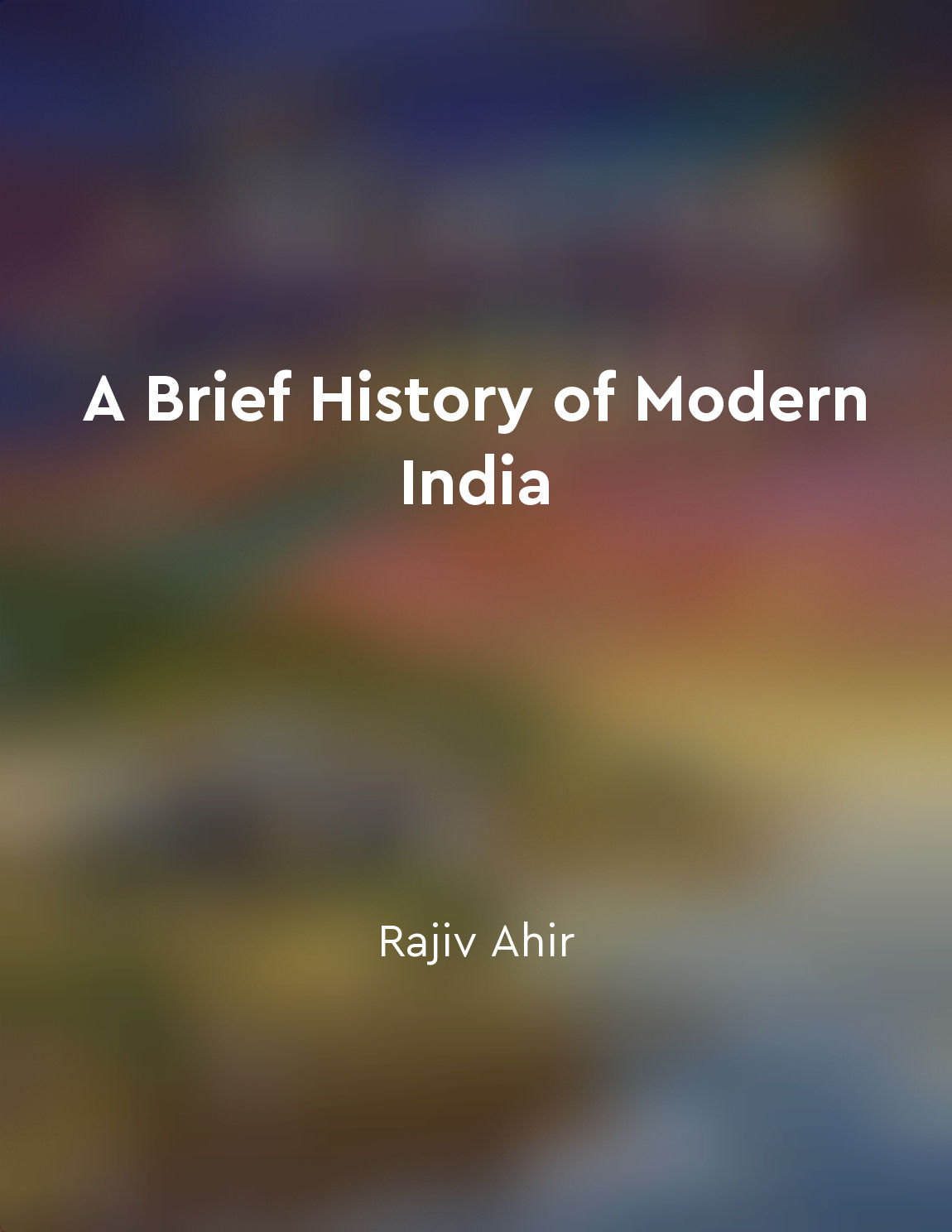Shift towards communal politics from "summary" of A Brief History of Modern India by Rajiv Ahir
The concept of communal politics refers to the growing emphasis on religious and communal identities in the political landscape of India. This shift was particularly noticeable in the late 19th and early 20th centuries, as various religious communities began to assert their interests and demands within the political sphere. The British policy of divide and rule played a significant role in exacerbating communal tensions and creating a fertile ground for communal politics to take root. One of the key factors driving this shift towards communal politics was the emergence of religiously oriented political organizations and movements. For example, the Hindu Mahasabha and the Muslim League were established to promote the interests of Hindus and Muslims, respectively. These organizations sought to mobilize their respective communities around religious identities, often at the expense of broader national unity. The partition of Bengal in 1905 further fueled communal tensions and solidified the trend towards communal politics. The decision to divide the province along religious lines was seen as a deliberate attempt by the British to sow discord and weaken the growing nationalist movement. The subsequent Swadeshi movement, which aimed to boycott British goods and promote Indian industries, also took on a communal tone as Hindus and Muslims rallied around their respective religious identities. The Morley-Minto Reforms of 1909 further institutionalized communal representation by introducing separate electorates for Muslims. This move was intended to give Muslims a greater voice in the political process, but it also served to deepen communal divisions and pave the way for the eventual demand for a separate Muslim state. The rise of leaders like Bal Gangadhar Tilak and Muhammad Ali Jinnah, who championed Hindu and Muslim interests, respectively, further underscored the growing influence of communal politics in Indian society. These leaders played a key role in shaping the political discourse along communal lines and laying the groundwork for the eventual partition of India in 1947.- The shift towards communal politics in modern India was a complex and multifaceted phenomenon driven by a combination of historical, social, and political factors. This trend not only shaped the course of Indian nationalism but also had far-reaching consequences for the future of the Indian subcontinent.


